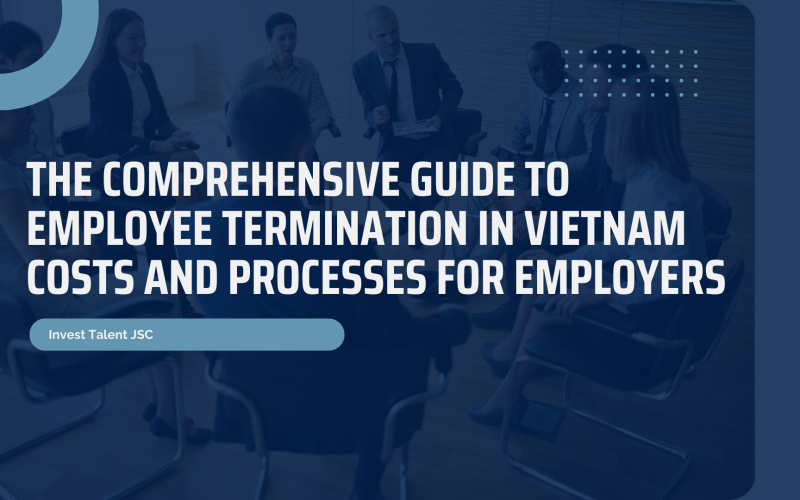Comprehensive Guide to Setting Up a Foreign Direct Investment (FDI) Company in Vietnam
Vietnam continues to be a magnet for foreign direct investment, driven by its robust economic growth, strategic geographic position, abundant workforce, and investor-friendly policies. Establishing an FDI company in Vietnam requires navigating a structured legal and administrative process.
1. Understanding FDI in Vietnam: Key Concepts
Foreign Direct Investment (FDI) in Vietnam typically involves the establishment of a legal entity by foreign investors within the country to engage in business activities. The primary laws governing FDI are the Investment Law 2020 and the Enterprise Law 2020, along with their guiding decrees.
Common types of FDI entities include:
- 100% Foreign-Owned Enterprise (FOE) / Limited Liability Company (LLC): The most common and preferred choice, allowing foreign investors full control and ownership. Liability is limited to the capital contributed. This is the most straightforward option where foreign ownership is permitted.
- Joint Venture Company (JVC): A partnership between one or more foreign investors and one or more Vietnamese entities. This is often necessary or advantageous in sectors where full foreign ownership is restricted, or where local market insight, existing networks, or specific licenses are crucial.
- Joint Stock Company (JSC): Suitable for larger-scale investments or when planning to raise capital from a broader base of shareholders. A JSC requires a minimum of three shareholders.
- Representative Office (RO): Not an FDI company in the traditional sense, as it cannot engage in profit-generating activities. An RO is limited to market research, liaison, and promotional activities. It's a stepping stone for market entry but cannot directly conduct business.
- Branch Office: An extension of a foreign parent company, allowing it to undertake commercial activities directly. However, the parent company bears full liability for the branch's operations. Less common for initial FDI, but may be used by certain regulated industries (e.g., banking, law).
Key Considerations for Choosing Your FDI Structure:
- Ownership and Control: Do you desire 100% control, or are you willing to partner with a Vietnamese entity?
- Business Sector Restrictions: Some sectors have foreign ownership limits (FOLs) or may require a joint venture. Always check Vietnam's WTO commitments and local regulations.
- Capital Requirements: While there's generally no fixed minimum for most sectors, the declared charter capital must be reasonable and sufficient for your project's scale and operations. Some specific industries (e.g., finance, real estate, education, security services) have mandated minimum legal capital.
- Operational Scope: Will your entity engage in full commercial activities, or is it for non-profit purposes like market research?
- Liability: An LLC offers limited liability, protecting personal assets, unlike a branch office.
2. Essential Legal Requirements for FDI Companies
Before embarking on the setup process, ensure you meet the following fundamental requirements:
- Legal Representative: At least one legal representative is required. This individual can be foreign or Vietnamese but must have a residential address in Vietnam and be registered with the company.
- Registered Business Address: A physical and legal address in Vietnam is mandatory. You'll need a valid lease agreement for the chosen premises. Virtual offices are generally not accepted for company incorporation.
- Financial Capacity: Foreign investors must demonstrate adequate financial capability to undertake the proposed investment project. This often involves providing bank statements or audited financial reports.
- Permitted Business Lines: Your company can only conduct activities listed in its Investment Registration Certificate (IRC) and Enterprise Registration Certificate (ERC). Carefully define your business lines according to the Vietnam Standard Industrial Classification (VSIC) codes. Be aware of conditional business lines that require additional licenses or meet specific conditions.
- Document Legalization & Translation: All foreign-issued documents (e.g., corporate registration, financial statements, passports) must be notarized in your home country, legalized by the Vietnamese Embassy/Consulate, and then translated into Vietnamese by a competent authority in Vietnam.
3. Step-by-Step FDI Company Registration Process
The FDI company setup process in Vietnam typically involves several inter-related stages:
Step 1: Pre-Investment Planning & Due Diligence
- Market Research: Understand market demand, competition, and regulatory landscape for your specific industry.
- Feasibility Study/Business Plan: Develop a comprehensive plan outlining your business objectives, scale, capital investment, technology, and implementation schedule. This is a crucial document for the IRC application.
- Location Selection: Choose a suitable location, considering industrial zones for manufacturing, commercial areas for services, and ensuring the address is compliant with local zoning regulations.
- Identify Business Lines: Confirm permissible business activities and any associated foreign ownership limits or special conditions.
- Prepare Investor Documents:
- For Individual Investor: Notarized copy of passport, bank confirmation of sufficient funds, proof of address.
- For Corporate Investor: Notarized and legalized copy of Certificate of Incorporation/Business Registration, Articles of Association, audited financial statements (last two years), Board Resolution to invest in Vietnam, passport of authorized representative.
- Other Documents: Draft lease agreement for the office/factory, proposed company charter (Articles of Association).
Step 2: Apply for Investment Registration Certificate (IRC)
- Authority: Department of Planning and Investment (DPI) in the province/city where the company will be headquartered, or the management board of an Industrial Park/Export Processing Zone if located there.
- Purpose: The IRC approves your investment project, granting you the legal right to invest in Vietnam.
- Process: Submit a complete application dossier. For complex projects, it might involve evaluation by various ministries. Some investment projects (e.g., large-scale, sensitive sectors) require pre-investment approval before the IRC application.
- Timeline: Approximately 15 working days for standard projects, but can extend for complex or conditional projects.
Step 3: Apply for Enterprise Registration Certificate (ERC)
- Authority: Department of Planning and Investment (DPI).
- Purpose: The ERC formally establishes your company as a legal entity in Vietnam. It contains basic company information, including the official tax code (which is the same as the ERC number).
- Process: After obtaining the IRC, submit a separate application for the ERC.
- Timeline: Approximately 3-5 working days from the submission of complete documents.
Step 4: Post-Licensing Procedures
Once IRC and ERC are obtained, these crucial steps complete your company's setup:
- Company Seal: Have a company seal (stamp) carved. According to the Enterprise Law 2020, companies can decide on the form, content, and number of seals without prior notification to the Business Registration Authority.
- Public Announcement: Publish your company's establishment information on the National Business Registration Portal within 30 days of ERC issuance.
- Bank Account Opening:
- Direct Investment Capital Account (DICA): Open a DICA at a licensed commercial bank in Vietnam. This account is specifically for foreign currency transactions related to direct investment, such as capital contribution and profit repatriation.
- Vietnamese Dong (VND) Account: Open a local currency account for daily operational expenses.
- Capital Contribution: Transfer the registered charter capital into the DICA within 90 days from the ERC issuance date. Failure to do so can lead to penalties or even revocation of the ERC.
- Initial Tax Registration: Register for corporate income tax (CIT), value-added tax (VAT), and business license tax. Set up electronic invoicing (e-invoicing).
- Labor & Social Insurance Registration: Register employees with labor and social insurance authorities. If hiring foreign employees, initiate work permit and temporary residence card applications.
- Sub-licenses/Operating Permits: For conditional business lines (e.g., import-export, education, healthcare, e-commerce, certain manufacturing activities), additional sub-licenses or permits are required from relevant ministries/departments before commencing operations.
4. Ongoing Compliance Requirements
Successful establishment is only the beginning. FDI companies must ensure continuous compliance with Vietnamese laws:
- Annual Financial Audit: Required for all foreign-invested companies.
- Tax Filings: Regular submission of VAT, CIT, and personal income tax (PIT) declarations, along with annual financial statements.
- Statistical Reports: Submission of various reports to the DPI and other relevant ministries (e.g., quarterly, annual investment reports to the National Foreign Investment Information System).
- Labor Law Compliance: Adherence to regulations on employment contracts, working hours, social insurance, health insurance, unemployment insurance, and trade union contributions.
- Work Permits & Temporary Residence Cards: Ensure all foreign employees have valid work permits and temporary residence cards.
- Changes & Amendments: Any changes to company information (e.g., name, address, capital, business lines, legal representative) must be registered with the DPI.
- Environmental Protection: Compliance with environmental regulations, including obtaining environmental permits if applicable.
Parter with Invest Talent for Business Set-Up Service
Setting up an FDI company in Vietnam is a multi-faceted process that can be daunting for foreign investors due to legal complexities, language barriers, and bureaucratic procedures. This is where professional business setup services, like Invest Talent, become indispensable partners.
While "Invest Talent" often refers to a recruitment or HR service, for the purpose of this guide, we provide comprehensive business setup and investment consulting services in Vietnam, drawing on its expertise in the local market.
Invest Talent's Business Set-Up Service aims to provide end-to-end support, ensuring a smooth, compliant, and efficient market entry for foreign investors.
How Invest Talent Can Assist You:
Strategic Pre-Investment Advisory:
- Feasibility Assessment: Conduct an initial assessment of your project's viability in Vietnam, considering market conditions, legal frameworks, and potential incentives.
- Structure Recommendation: Advise on the most appropriate legal entity (100% FOE, JV, etc.) based on your specific industry, ownership preferences, and long-term goals.
- Business Line Clarification: Help accurately identify and register your business lines according to Vietnamese classification, avoiding future complications.
- Capital Guidance: Provide recommendations on reasonable charter capital amounts and assist in demonstrating financial capacity to authorities.
- Location Strategy: Advise on suitable locations, including industrial parks, and assist with property search and lease agreement review.
Comprehensive Document Management:
- Document Checklist & Preparation: Provide a detailed checklist of all required documents (both foreign and local) and assist in their preparation, ensuring accuracy and completeness.
- Drafting Legal Documents: Prepare the company charter, investment project proposal, application forms, and other necessary legal paperwork in Vietnamese and English.
- Notarization & Legalization: Facilitate the notarization of foreign documents and their consular legalization at Vietnamese diplomatic missions abroad, as well as official translation in Vietnam.
Application Submission & Government Liaison:
- IRC & ERC Application: Manage the entire application process for the Investment Registration Certificate (IRC) and Enterprise Registration Certificate (ERC) with the Department of Planning and Investment (DPI) or relevant management boards.
- Follow-Up & Problem Solving: Act as your primary liaison with Vietnamese authorities, proactively following up on applications, responding to queries, and resolving any issues that may arise to expedite approvals.
- Conditional Project Handling: For projects requiring special approvals or involving conditional business lines, Invest Talent can navigate the complex multi-ministerial approval processes.
Post-Licensing & Operational Setup:
- Company Seal: Arrange for the official company seal carving and its proper registration.
- Bank Account Setup: Guide you through opening the Direct Investment Capital Account (DICA) and local currency bank accounts, ensuring compliance with State Bank of Vietnam regulations.
- Tax & Accounting Setup: Register your company for all necessary taxes (CIT, VAT, PIT) and set up initial accounting systems and e-invoicing.
- Labor & HR Compliance: Assist with initial labor registration, social insurance enrollment, and applications for work permits and temporary residence cards for foreign employees.
Ongoing Compliance Support (Optional):
- HR outsourcing & recruitment service: Offer comprehensive ongoing HR responsibilities, ensuring timely and accurate filings.
- Payroll Solutions: Provide payroll management, social insurance administration, and general HR advisory services.
Benefits of Partnering with Invest Talent:
- Deep Local Expertise: Leverage extensive knowledge of Vietnamese laws, regulations, and administrative practices, ensuring compliance and minimizing risks.
- Time & Resource Efficiency: Streamline complex procedures, saving you significant time and allowing you to focus on your core business strategies.
- Risk Mitigation: Reduce the likelihood of application rejections, penalties, or legal issues due to improper documentation or non-compliance.
- Language & Cultural Bridge: Overcome communication barriers with government officials and navigate cultural nuances effectively.
- Tailored Solutions: Receive customized advice and services that align with your specific investment objectives and industry requirements.
By engaging a specialized service provider like Invest Talent, foreign investors can confidently and efficiently establish their FDI presence in Vietnam, setting the foundation for successful long-term operations in this dynamic market.

_Company_in_Vietnam-cr-1200x430.png)









